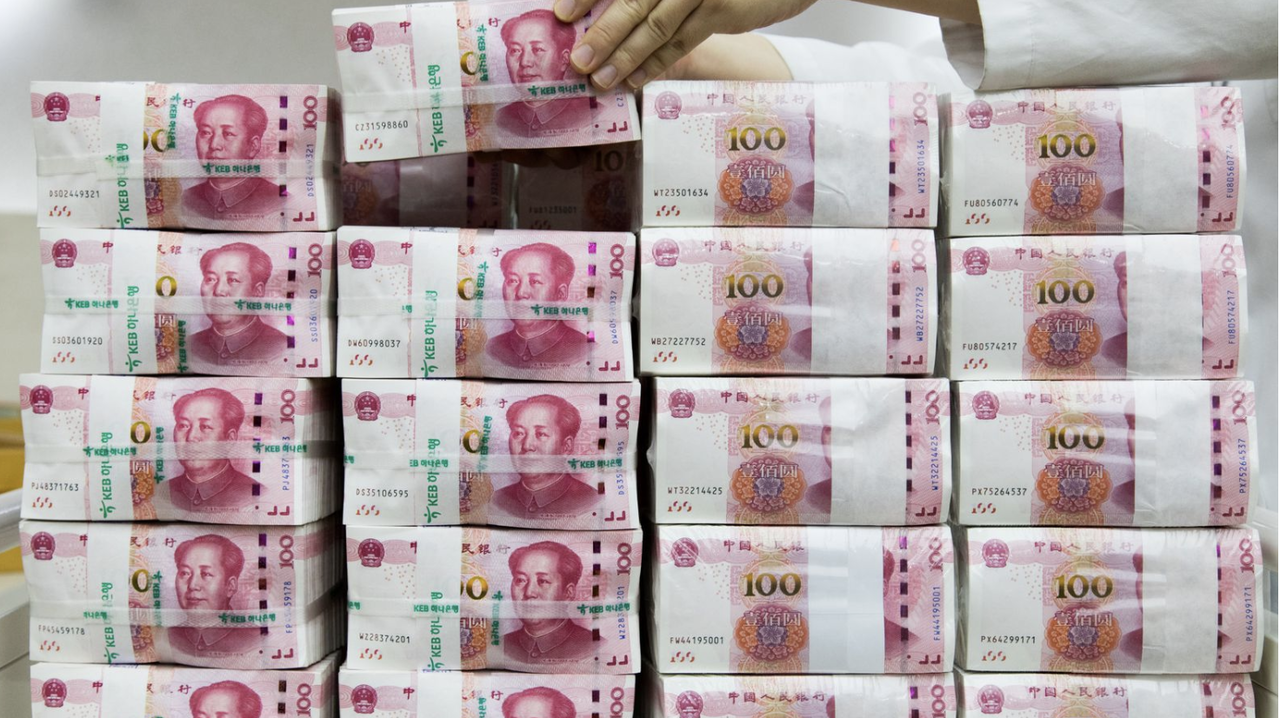It looks like China’s unstoppable default tsunami is about to claim its latest corporate victim…and thanks to lax oversight that allowed the company to get away with what appears to be a staggering accounting fraud, thousands of unsuspecting investors might be left holding the bag.
According to Bloomberg, Kangmei Pharmaceutical Co., one of China’s largest listed drugmakers, revealed on Tuesday that it had overstated its cash holdings by $4.4 billion. Unsurprisingly, the revelation, which immediately exposed the company to be teetering on the brink of insolvency, sent its shares and bonds tumbling. Its shares, which are a constituent of MSCI’s global index, plunged by the 10% daily limit. Its 2.4 billion yuan ($356 million) notes due in 2022 dropped by as much as 60 yuan (about $9).
It’s just the latest example of why investors must be wary of Chinese companies due to lax regulations, even as its equity and bond markets are becoming increasingly internationalized. The company’s revelation came four months after it revealed that Chinese authorities had launched an investigation into the company.
One of BBG’s sources said the restatement is ‘unprecedented’ in the history of Chinese security markets.
The immense size of Kangmei’s restatement, described by one securities lawyer as unprecedented for China, puts a spotlight on disclosure practices in a country where companies are defaulting at a record pace and several instances of questionable accounting have emerged in recent months. The issue has become increasingly important for global investors and securities firms as they gain unprecedented access to China’s gargantuan stock and bond markets.
“Investors have to be more careful about Chinese firms’ reporting,” said Andrew Lam, a director at BDO, an international accounting firm. “They will have to do real homework, examining closely companies’ financial reporting for any potential irregularities.”
The China Securities Regulatory Commission, which in recent years has been pushing the nation’s stock exchanges to delist companies that provide inaccurate disclosures, didn’t immediately reply to a faxed request for comment. The Shanghai Composite Index rose 0.5 percent at 1:36 p.m. local time.
Though the company could face de-listing over the fraud, it said it will try and raise more capital to meet an upcoming bond obligation due Sept. 3. All of this is happening after Beijing’s decision to start allowing companies to fail led to a record number of Chinese corporate defaults.
Kangmei, based in China’s southern Guangdong province, said it faces forced delisting if the CSRC classifies its behavior as a major legal violation, according to a company notice on risks related to its ongoing CSRC investigation. The drugmaker’s upcoming bond maturities include a 750 million yuan note due Sept. 3. Kangmei plans to sell as much as 20 billion yuan of bonds to replenish working capital and repay debt, the firm said in a filing on Tuesday.
Other companies that have faced similar scrutiny from regulators include Kangde Xin Composite Material Group Co., which defaulted on a bond in January after reporting cash levels just four months earlier that were enough to pay the debt 15 times over. The CSRC began investigating Kangde Xin in October.
But as one analyst points out, this isn’t the first time a Chinese company has displayed a high cash balance while selling bonds, then the cash just disappeared.
“We have seen a number of Chinese companies with high cash balances still seek funding from investors, and later on the cash just disappears,” said Raymond Chia, head of credit research for Asia excluding Japan at Schroder Investment Management Ltd. “We should really question borrowers.”
While investors will be watching the CSRC, one of China’s most powerful securities regulators, to see how it handles the case, whatever the result, one investor said the Kangmei will likely ‘struggle to win back the confidence of investors’ – which sounds to us like the understatement of the century.
Investors will watch the CSRC for more details on what went wrong at Kangmei, according to Guo Feng, head of the wealth management department at Northeast Securities Co. Whatever the result, the company may struggle to win back investor confidence, said Shen Chen, a partner at Shanghai Maoliang Investment Management.
“This scandal could narrow their refinancing channels as investors flee,” Shen said.
Though BBG reported that this was the largest cash discrepancy on record, a bankruptcy from earlier this year suggests that this might not be true.
Back in January, the bankruptcy of Jiangsu-based Kangde Xin Composite Material Group, took investors by surprise when it failed to pay a 1 billion yuan ($148 million) local note due Jan. 15 due to a liquidity crunch, according to the company. The shocking punchline? As research analyst Tim Yup pointed out, as of end-September Kangde Xin reported that it had 15.4 billion yuan in cash and equivalents, more than double the total amount of its short-term debt, and more than 15 times the amount of debt that it just defaulted on.
Clearly, when it comes to the balance sheets of indebted Chinese companies, no cash balances can be taken as a certainty.
via ZeroHedge News http://bit.ly/2GKkicg Tyler Durden
